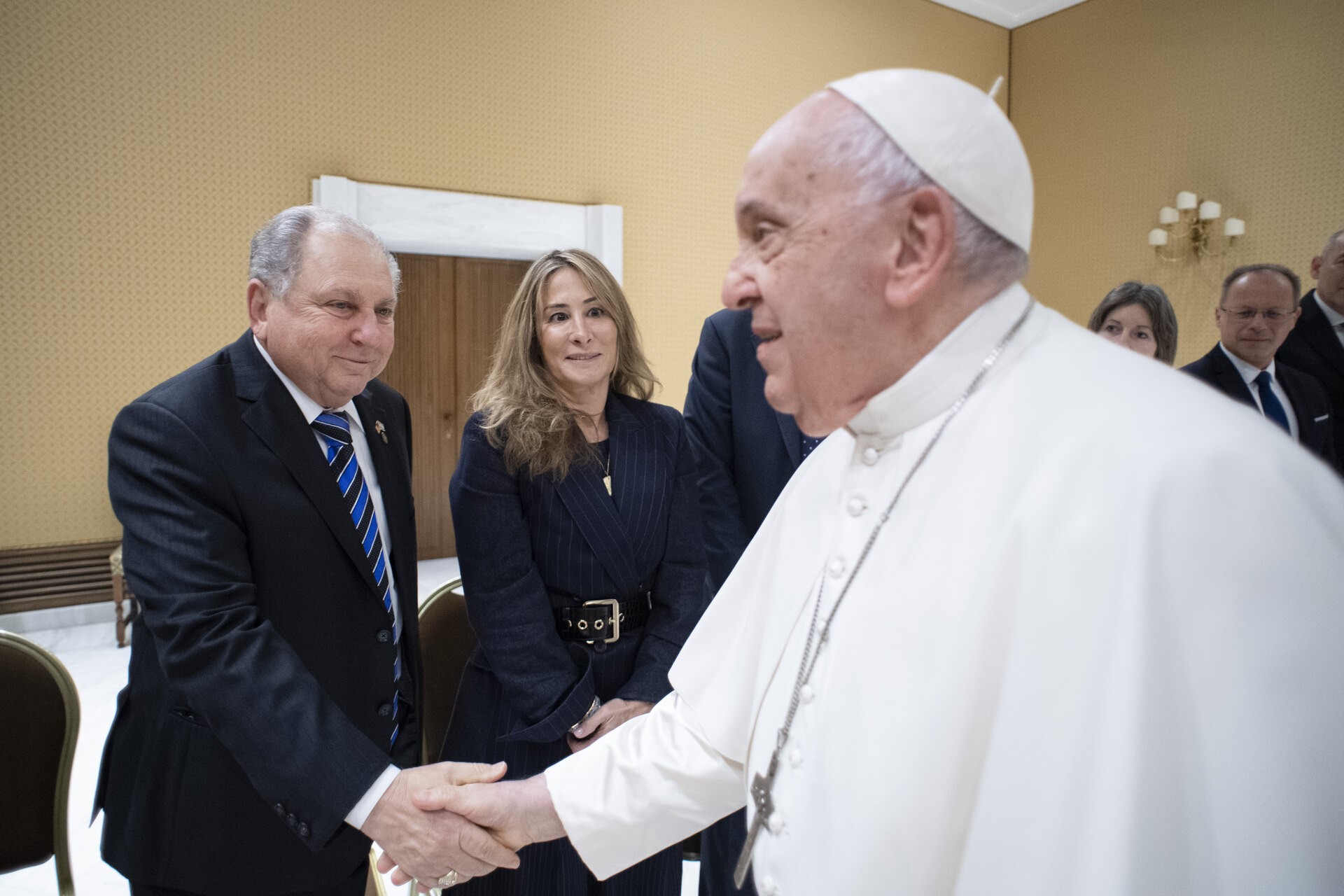Community member Sam Devinki recently had a rare opportunity, one that most people never experience: He had a face-to-face meeting with Pope Francis.
Devinki was one of nine former and current council members of the United States Holocaust Memorial Museum (USHMM) who was asked to participate in a special trip to Italy. Though the itinerary included stops in Venice and Milan, the purpose of the trip was to visit the Vatican in Rome to thank the pope for releasing the personal papers of Pope Pius XII from World War II.
"He's the first pope to do that," Devinki said.
Devinki said there has always been controversy around whether Pope Pius XII, who was German, didn't fully denounce Nazism because he was trying to protect the Catholic Church from Adolf Hitler's wrath or because he was an antisemite.
"These papers will help answer that question, but I think the real answer is both," Devinki said, noting that though Pope Pius XII is credited with saving thousands of Jews, many of them had been baptized and were considered Catholic.
The group was driven into Vatican City on the morning of their meeting with Pope Francis. Devinki said he was surprised that members of the group didn’t have to go through security — not even when they were escorted into the pope’s private residence.
“We were never asked for I.D., never went through the metal detector, and in the room where we met him, there was no visible security,” he said.
There were 22 people in the group, including several USHMM staff members, nine board members and their spouses and partners. Mary Stahl, Devinki’s lifelong companion, accompanied him on the trip.
The pope entered the room and shook everyone’s hands before Sara Bloomfield, the USHMM’s executive director, presented him with a document thanking him for releasing the Pope Pius XII documents.
Six members of the group were children of Holocaust survivors, and two of them — including Devinki — had families who were rescued by Catholics. Upon hearing this, the pope asked them to share their stories. Devinki shared about his grandfather’s friend and business partner, a Polish Catholic, who saved not only Devinki’s family but a total of 52 Jews. He and his wife are recognized by Yad Vashem as righteous gentiles.
The group was only scheduled to meet with the pope for 15 minutes. Thousands of people were waiting for him to begin a mass service immediately afterwards, but the pope didn’t seem too concerned about sticking to the schedule.
“The pope said, ‘I really have to go,’ and then kept talking for another 25 minutes,” Devinki said.
Devinki said the pope is a very gentle man who speaks softly, and at the end of the session, he asked the group to pray for him. Meeting the pope was a one-in-a-lifetime experience.
"It’s like meeting any dignitary…," Devinki said. “When you meet those types of people, it’s an honor.”
Other highlights of the trip included meeting the U.S. ambassador to the Holy See (the diplomatic representative of the Roman Catholic Church and the pope), the U.S. ambassador to Italy and the bishop in charge of Jewish-Catholic relations who, Devinki said, made a point of saying that the Catholic Church’s attitude towards the Jewish community has dramatically changed since the 1960s.




